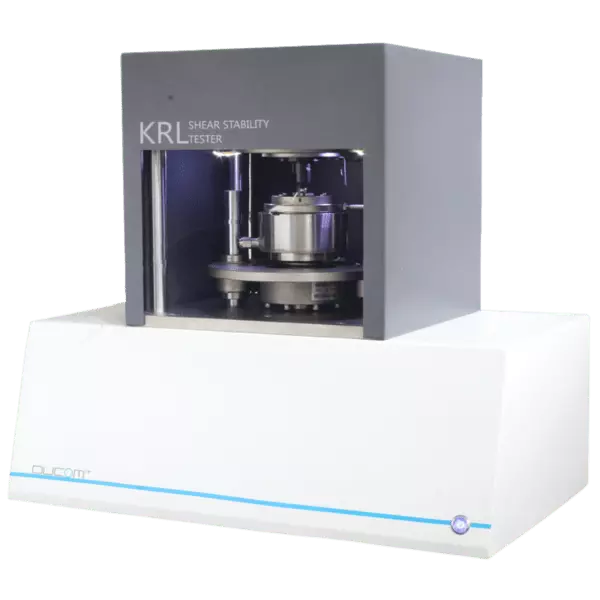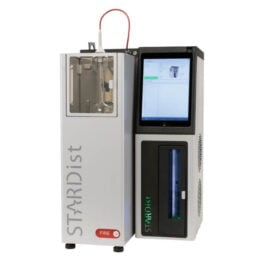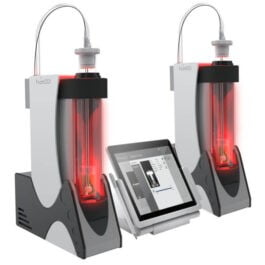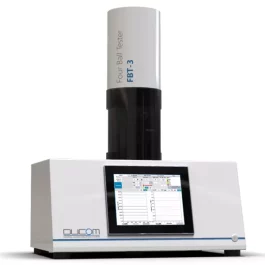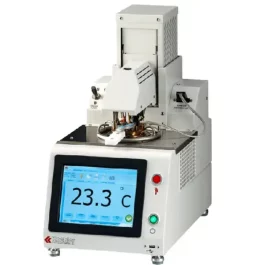KRL Shear Stability Tester KRL-SST-1
Stand-alone KRL Shear Stability Testing KRL-SST-1
Methods : CEC L-45-99 , DIN 51350-6
The unique automated and compact standalone Ducom KRL-SST-1 KRL shear stability tester features inline torque measurement for hundreds of hours of testing with precision and dependability.
- THE ONLY AUTOMATIC KRL TESTER THAT FULLY COMPLIES WITH THE CEC L-45-99.
- Accurate shear stability testing for lubricants and related products
- Easy-to-use software with pre-programmed test protocols.
- Automatic and stable loading system for long-duration tests.
- Custom-designed high-precision temperature control system.
- Future-ready with fast response temperature sensors and friction measurement capabilities
- Pneumatic loading uses compressed air and a bellow system instead of dead weights to make testing quicker, easier and safer.
- Equipped with more sensors than any other KRL system in the market and offers excellent stability through long-duration tests.
Ducom KRL-SST-1 Automated and compact standalone KRL shear stability tester
CEC L45-A-99 – The KRL Tapered Roller Bearing test is becoming the test of choice for many manufacturers around the world. The KRL Shear Stability test is considered the most severe and offers the best correlation to actual field performance. Test oil is run in a fitted tapered roller bearing for 20 hours under design load. Compare before and after viscosities for the percentage of viscosity loss.
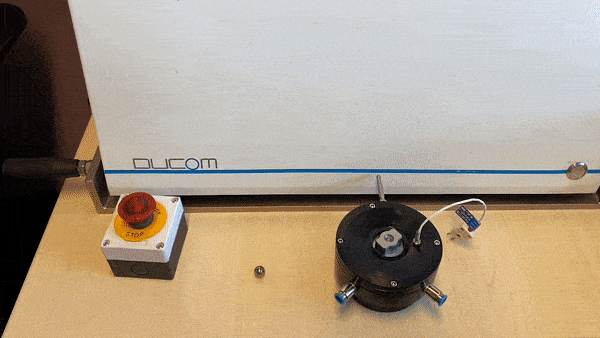 The DUCOM KRL-SST-1 is the only cutting-edge standalone instrument designed to accurately meet the CEC L-45-99 specifications guarantees to detect the shear stability of lubricants and other related products.
The DUCOM KRL-SST-1 is the only cutting-edge standalone instrument designed to accurately meet the CEC L-45-99 specifications guarantees to detect the shear stability of lubricants and other related products.
Complying with industry-standard test methods such as CEC L-45-99 and DIN 51350-6, this tester ensures precise measurements and reliable results for assessing the shear stability of transmission lubricants and polymer-containing lubricating oils.
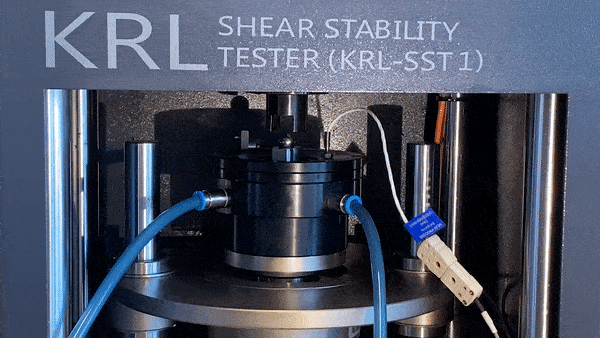
The Ducom KRL-SST-1 is the first and only automatic shear stability tester in full compliance with the applicable test standards. While KRL options are also available for standard four-ball testers, the dedicated KRL-SST-1 system is recommended for users who perform KRL shear stability tests regularly and regularly run long-duration tests without blocking out the use of their Four Ball Tester.
The KRL-SST-1 is automatic and precise.
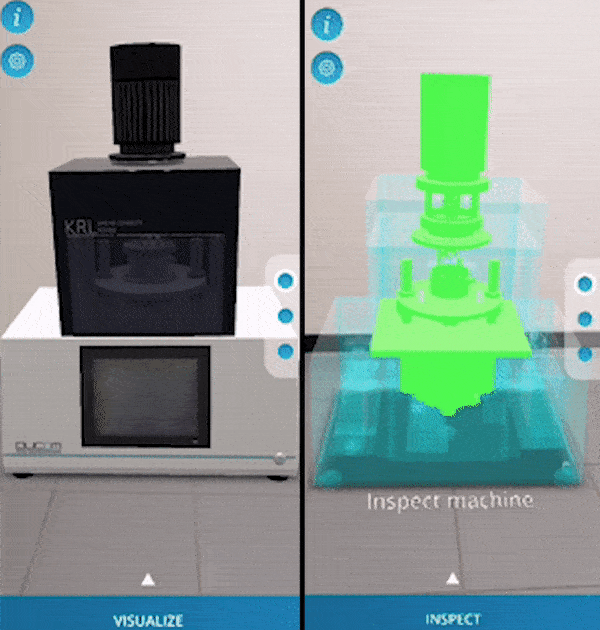
The automatic loading system and a custom-developed high-precision temperature control system provide users with an easy testing experience. The ultra-stable loading system is excellent for long-duration tests that can last several hundred hours.
The easy-to-use software with pre-programmed test protocols makes testing simple. A custom mode allows you to program your custom test protocols.
Future-ready KRL-SST-1 shear stability tester with a fast response temperature sensor and friction measurement capability can use for measuring shearing-induced heating, thermal response, and frictional torque measurements.
The Ducom KRL is equipped with more sensors than any other KRL system in the market and offers excellent stability through long-duration tests. The friction measurement capabilities are a useful addition that extends the capabilities of the KRL-SST-1 beyond test standards to extract more information from each test.
Ducom KRL-SST-1 shear stability tester
| Speed | 0 to 1,500 rpm |
| Normal Load | 500 to 5,000 N |
| Friction Force | 0 to 100 N |
| Temperature | Ambient to 60 °C |
| Test oil quantity | 40 ml |
| Taper test rolling bearing | SKF 32008X |
- Manual Loading System
- Frictional Torque Measurement Module
- MOOHA digital lab assistant
Shear Stability Testing
For Oils and Viscosity Index (VI) Improvers
Lubricant Investigations
- Quality analysis of hydraulic and gear oils used in mining and construction equipment.
- Screening of polymers used as viscosity index improvers (VIIs) in oils.
- Development of predictive models using both friction torque and kinematic viscosity loss of oils.
- Investigate accelerated oil aging in the lab

